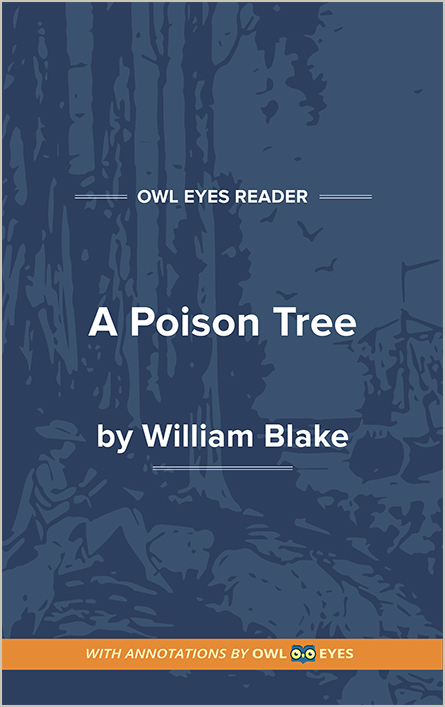The speaker’s decision to cultivate the tree of wrath with water and sun represents a sort of passive aggression. The speaker’s feelings of wrath are an internal state which, left unaddressed and unchecked, become external. It is the wrath’s external form, the tree with its poisonous fruit, that becomes a danger to others, in this case the human “foe.” On one level, the tree of externalized wrath reveals the particular character of the speaker, a Satan-like figure who deceives humanity. On another level, all humans can be guilty of handling their inner emotions in a way that becomes poisonous to the outside world. The character of Satan serves to illustrate this broader theme.

